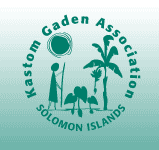|
History of the Kastom Gaden Association... Page updated |
EVALUATIONAssessing the programmeMonitoring visits by Australian staff in 1997 and 1998 provided the opportunity for Solomon Island staff to get together and take a look at their work. The aim of the monitoring visits was to develop a picture of the program for APACE management, however the information was also useful to program staff in the Solomon Islands. It was intended that monitoring should be as useful to the country office as it was to the Australian organisation. Six criteria were used to evaluate the program:
These were derived from criteria used by Oxfam. In addition to these, the program was monitored against its objectives. The 1998 monitoring visit of October and November disclosed a program making headway despite limitations imposed by too few financial, material and staff resources. RelevanceThe criteria of relevance assessed the program against the conditions existing in the country and the agricultural and food needs of the program partner communities. The relevance of the KGP’s work was boosted by a number of factors:
EffectivenessEvidence for the effectiveness of the agriculture program’s approach to training and development was visible in the form of:
Boosting effectivenessTo boost its effectiveness, the KGP has:
EfficiencyThe fact that the KGP stretched the AusAID funding a year beyond the planned two year period without contraction of program activities provides evidence for the frugal use of funds. The combined implementation of activities for the three pre-2000 projects during visits to Choiseul resulted in the conservation of funds and staff time. ProgressMonitoring and evaluation disclosed considerable progress towards the program’s objectives. Although progress has sometimes been faltering, the overall trend has been towards the achievement of objectives. Some objectives, however, have been changes in light of experience. Probably the greatest setback to the program’s work has been the coup and conflict of mid-2000 which saw the return of some program staff to their home islands as a security measure and the partial abandonment of the project centre at Burns Creek. ImpactThe impact of the program is evident from the adoption of ideas passed on through training activities. SustainabilitySustainability refers to the capability of program managers to continue to operate the program. Financial sustainabilityAn urgent need for new funding came with the ending of AusAID support in late 1998. The six month period of funds shortfall which followed was caused by a lack of early planning to find new sources and was largely due to constraints on staff time. The obtaining of new funding in 1999 solved the funding problem. It is the nature of agricultural development programs that they are reliant upon external donor funding. Consequently, time to produce funding applications should form part of the program’s workflow. Organisational sustainabilityStaff training will need to be formalised in some way to provide the skills and knowledge base for future operations, especially if the program starts work on Bougainville. Training would provide the skills to continue to adapt to the needs of rural communities and the changing social, economic and security circumstances of the Solomon Islands. The future of the Honiara project centre will have to be questioned if the present three year lease arrangement with Joini Tutua changes. In the year 2000, regional project centres were set up at Mana’Abu, North Malaita, and on the island of Munda, north of Guadalcanal, in response to the deterioration of the internal security situation in Honiara. This, in effect, led to the decentralisation of the KGP, an idea discussed earlier in the programs development but not acted upon. In retrospect, the decentralisation can be seen as contributing to program sustainability although its motivation was reactive, in response to the security emergency. In 1999, the major assets held by the Kastom Garden Program, such as the photovoltaic power supply and office equipment like computers, appeared to be adequate for present needs. Unfortunately, the photovoltaic panels were stolen during security crisis of mid-2000. Overall, its been progressDespite earlier struggles with too few staff and too little funding, and despite the setbacks and disruptions caused by the year-2000 security crisis in Honiara, the overall direction of the KGP has been forward. Progress has been slow, but achievements have been made. Now, in late-2000, the leadership is starting to look more to the region as a focus for the program. Tony made a month-long fact finding journey in Bougainville - a large Melanesian island recovering from a decade of civil war-in 2000 - and found prospects for program work there. Contacts were made and project outlines worked up. There remains the possibility, but not the likelihood at present, of work in Papua New Guinea and East Timor. As always, it is the availability of resources and funding which limits the possibilities, not staff or organisational enthusiasm. Evaluation page 1: assessing the programme |
|
© 2007 Kastom Gaden Association | PO Box 742 Honiara SOLOMON ISLANDS | P: 677 39138 | F: 677 30840 | |



